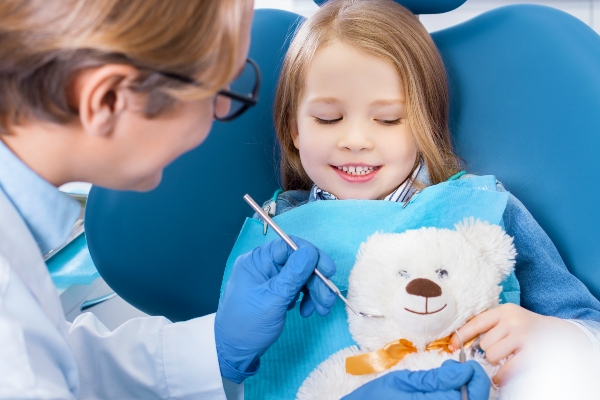 Our kid friendly dentist helps to keep your child’s teeth healthy by educating you on proper ways to clean their teeth and gums and performing preventative treatments like the application of dental sealants.
Our kid friendly dentist helps to keep your child’s teeth healthy by educating you on proper ways to clean their teeth and gums and performing preventative treatments like the application of dental sealants.
Good oral hygiene is the foundation of preventative dentistry, and it should start as soon as a child is born. A clean, damp cloth can be used to clean a baby’s gums after meals until their teeth start to erupt. Parents can then move on to using a soft toothbrush to clean their teeth.
Good dental hygiene combined with preventive treatments performed by a kid friendly dentist protects your child against issues like tooth decay and gum disease. Both are responsible for most visits to dental clinics.
Preventive treatments performed by our kid friendly dentist
Some of the preventative treatments dentists use to protect children’s teeth include:
1. Fluoride treatments
Fluoride treatments are one of the first preventive procedures performed on children. This is a straightforward process that takes less than a few minutes to complete. It involves coating the child’s teeth with a fluoride-infused varnish that dries up almost as soon as it is painted on. This minimizes the risk of the child swallowing the product, and it protects their teeth for up to six months. It is a safe way to strengthen a child’s teeth and prevent cavities from forming or worsening if they exist.
2. Dental sealants
Dental sealants are another popular preventive procedure. Sealants are protective shields that keep food particles, bacteria, and acids away from the biting surfaces of teeth. These sealants are made from the same composite resins used for composite bonding but come in liquid form. The sealant is painted on the child’s teeth during the treatment and hardened with a curing light.
They are typically recommended for molars since they are most vulnerable to decay, but they can be applied to all of a child’s teeth. Sealants reduce the risk of decay by almost 90% after a year and by almost 60% after four years.
Dental sealants are safe for children as young as 12 months, and follow-up coats can be applied as needed. Parents should consider getting their children’s teeth coated with sealants, especially if their teeth are prone to decay.
3. Teeth cleanings
Teeth cleanings are performed to remove tartar from teeth surfaces. Tartar is what plaque turns into after being left on teeth for more than a day. Plaque is the sticky film in the mouth that makes it feel fuzzy after sleeping. It contains bacteria and the acids they produce, which cause tooth decay.
Brushing does not eliminate tartar, so regular teeth cleanings are needed to minimize the damage it causes to teeth. Teeth cleanings also protect children from periodontal disease even though they are not as vulnerable to the condition as adults. The American Dental Association recommends children get their teeth cleaned at least twice a year.
We help keep your child’s teeth and gums safe
Preventive dental treatments reduce your child's risk of developing serious dental issues in the future. Call or visit our Fullerton clinic to set up a consultation with our dentist to discuss options.
Request an appointment or call Fullerton Orthodontics & Children's Dentistry at 714-459-8060 for an appointment in our Fullerton office.
Related Posts
Are you considering kid's dental crowns for your child? Read on to learn more. Children and adults alike occasionally require dental crowns. Kid’s dental crowns can protect a tooth from further deterioration or eventual extraction.You may be concerned about what to expect if your child's dentist recommends a dental crown. Children may be anxious about…
Children's tooth care is essential for maintaining good health in the long run. Poor dental hygiene can lead to cavities, gum disease, and other oral health problems, negatively affecting a child's overall health and well-being. Regular brushing, flossing, and visits to the dentist can help prevent these issues and teach children the importance of maintaining…
Baby root canals, or pulpotomies, are performed when a primary (baby) tooth has extensive decay or damage that affects the pulp. We understand it can be alarming for parents to hear their child needs this procedure at a young age. Therefore, we have created a step-by-step guide to the process to alleviate any worries parents…
